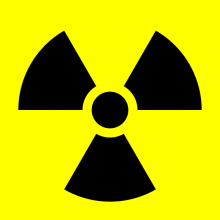Sometimes one change can lead to another, but one mustn’t confuse opportunity with reality. When President Barack Obama was elected in the United States, he made a point of trying to “reset” relations with Russia—it was an opportunity. Unfortunately, in reality it takes two to tango, and regardless of any short-term benefits, the Russians have not been so conciliatory.
Similarly, one might be tempted to reset the relationship with Iran after the election of Hassan Rouhani. New guy, new leaf, clean slate etc. But that would be a big mistake.
Rouhani, as already outlined in a previous post, is not the truly moderate, open-minded reformist some people wish him to be. Nor is he one willing to make genuine compromise on the Iranian nuclear program.
Rather, that warmer tone and more conciliatory speech indicates a desire to talk, but that’s all. Maybe, just maybe, his election indicates an openness that will extend talks with the West to negotiations and on to compromise. Maybe Rouhani will be the bridge—willing or not—that finally connects Iran and the US in peace and harmony. Maybe.
But actions speak louder than words and we need to see actions first. Israel has been the primary voice in this regard, and their points are good ones. First, the Israeli Ministry of Foreign Affairs reminded us all that Rouhani is not the one in charge of Iran’s nuclear program.
No, that responsibility lies with Supreme Leader Ayatollah Ali Khamenei. Iran’s leadership hasn’t really changed people. At best, Rouhani’s election indicates a possible openness on the part of Khamenei to dialogue with the West.
At worst? Rouhani is nothing more than a friendly mask covering an extremist terror-sponsor. “The President elect in Iran had been shortlisted by the Ayatollah Khamenei, who has disqualified and removed candidates who did not conform [to] his extremist views,” Israel’s Foreign Ministry warned in a statement. “Iran’s nuclear program has so far been determined by Khamenei, and not by Iran’s President.”
That’s why actions are so critical here. The US should emphasize their willingness to work with Iran and perhaps now is a good time to make some nice comments about reaching a historic deal. But sanctions should not be relaxed, aircraft carriers and planes should not be withdrawn, threats should not be taken off the table. At least not until Iran takes the first step or two and proves it’s changed.
Israeli Prime Minister Benjamin Netanyahu had this to say on the topic: “The elections in Iran will be tested by whether Iran changes its policies and stops all enrichment, takes out the nuclear material and shuts down the illicit nuclear facility in Qom. These are [United Nations] Security Council resolutions. Their feet should be held to the fire. It’s not a question of style, but substance. It’s not a question of political spin, but the spinning of [nuclear fuel-creating] centrifuges.”
Again, be open to talk. Be open to make the deal that’s been out there for years. But don’t relax, don’t reset, don’t retreat until Iran makes the first move towards reconciliation.
Remember what’s at stake: a nuclear-armed, terror-sponsoring nightmare that could cause gas prices to soar at a moment’s notice or supply global terrorists with weapons of mass destruction.
Remember how awful the Cold War was? How many conflicts were fought between the nuclear-armed Soviets and Americans? If you’ve forgotten, go read some history books. It wasn’t pretty.
A nuclear Iran would be as bad if not worse. At least the Russians weren’t religious fanatics whose beliefs about the end of the world called for mass conflict and chaos. Iran’s leaders are.
And not even the Russians were willing to reset relations with the US. Don’t repeat doomed history. Learn from it.
(By Joshua Spurlock, www.themideastupdate.com, June 21, 2013)

